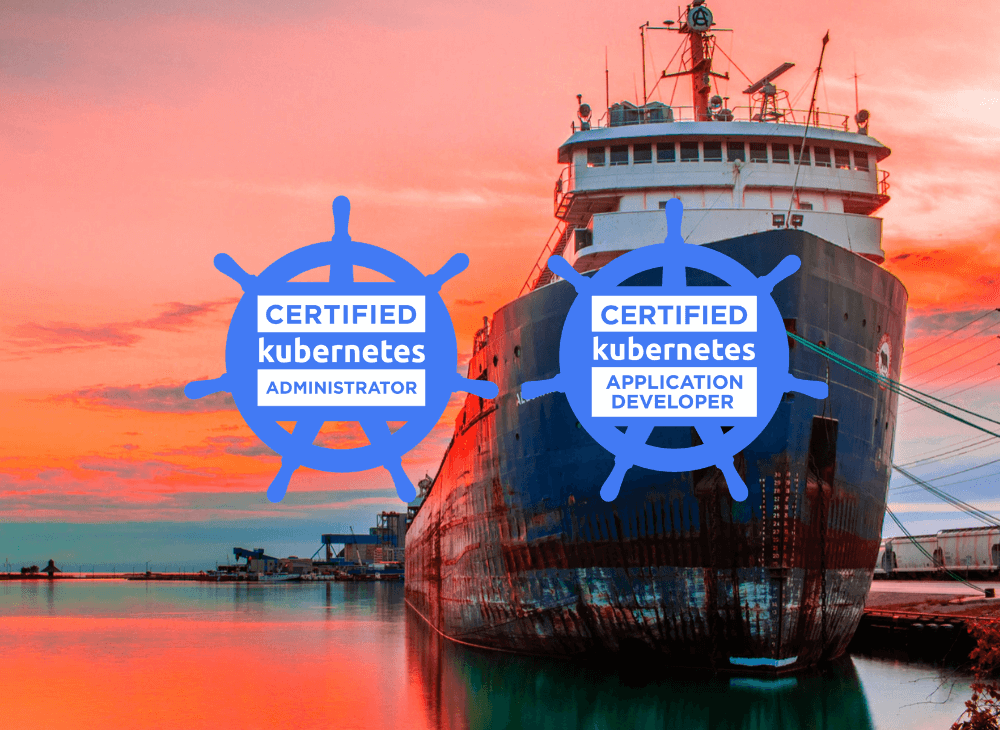Containers are the future. The world is coming to terms with the value that containerization brings and many companies are shifting the development and operations of their legacy systems to the cloud. The advantage is not just in cutting infrastructure costs since the cloud presents a cheaper option. Cloud-native computing also helps businesses to run their applications optimally and efficiently to improve service delivery and customer experience.
Kubernetes is one of the fastest-growing open-source containerization platforms that businesses are exploring to convert their applications into cloud-native apps and build new features on the cloud platform. It is no wonder that the demand for Kubernetes jobs has seen a sharp rise over the years. For professionals wishing to validate their skills and competencies, there two types of training offered towards Kubernetes certification paths; the Certified Kubernetes Administrator Certification or just Kubernetes Certification and the Kubernetes application developer training.
What is CKA?
CKA stands for Certified Kubernetes Administrator. It is a credential offered by the Cloud Native Computing Foundation (CNCF) in collaboration with The Linux Foundation to certify that a professional possesses the skills, knowledge, and competencies required to set up, troubleshoot, and manage Kubernetes clusters, and perform other tasks within the Kubernetes administrator domain.
The Certified Kubernetes Administrator curriculum covers the following domains
- Cluster architecture (25%)
- Workloads and scheduling (15%)
- Services and Networking (20%)
- Storage (10%)
- Troubleshooting (30%)
The CKA certification exam costs $300. It consists of 19 performance-based questions in a command-line environment to be tackled in two hours. Its passing score is 66%.
Requirements for CKA
There are no requirements for the CKA certification exam. However, it is important that one is familiar with basic Linux commands.
Who is this certification for?
- System administrators
- Cloud administrators
- Other professionals who manage Kubernetes clusters
What is CKAD?
CKAD stands for Certified Kubernetes Application Developer. This credential is also offered by The Cloud Native Computing Foundation (CNCF) in collaboration with The Linux Foundation. It validates a professional’s skill and knowledge in designing, configuring, and exposing cloud-native applications for Kubernetes. They should also be able to build, deploy, manage, and monitor scalable applications in Kubernetes using API primitives.
The Certified Kubernetes Administrator curriculum covers the following domains
- Core Concepts – 13%
- Configuration – 18%
- Multi-Container Pods – 10%
- Observability – 18%
- Pod Design – 20%
- Services & Networking – 13%
- State Persistence – 8%
The CKA certification exam costs $300. It consists of 19 performance-based questions in a command-line environment to be tackled in two hours. Its passing score is 66%.
Requirements for CKAD
There are no prerequisites for pursuing CKAD credential. However, a software development background will come in handy.
Who is this certification for?
- Kubernetes developers
- Software engineers
- DevOps professionals
What do CKA and CKAD have in common?
Looking at the examination overview, the CKA examination consists of 24 questions and the CKAD exams19 questions. Questions for both exams are performance-based and should be attempted within two hours. Both have a 66% passing score with each costing $300. You are awarded one free retake per exam if you do not attain the pass mark. Both examinations allow you to have an additional open tab with documentation on kubernetes.io and github.com/kubernetes during the exams. They both run on the Kubernetes v1.19 environment.
In terms of the exam curriculum,
- Both examinations cover Kubernetes’ core operation concepts, which lays the foundation for Kubernetes professionals in all roles. They also lay emphasis on cluster creation and configuration which is core to Kubernetes.
- Both CKA and CKAD cover the services and networking domain.
CKA vs. CKAD
While the CKA and CKAD qualifications have several things in common, particularly their exam structures, they are different qualifications in many ways. Let’s explore their differences.
- Purpose
The purpose of the CKA qualification is to test one’s understanding of the Kubernetes platform. This includes cluster component maintenance and system manipulation. With this, familiarity with the Linux operating system is essential.
The purpose of the CKAD qualification is to validate a professional’s cloud-native and DevOps developer skillset being that it focuses strongly on knowledge of Kubernetes API primitives.
- Curriculum
Beyond Kubernetes API primitives, the CKA exam also covers etcd, kubelet, tls bootstrap, and other Kubernetes internals. CKA has a strong focus on cluster architecture and will test one’s knowledge of cluster deployment, configuration, monitoring, and troubleshooting. It also features workloading & scheduling and other tasks unique to a cluster administrator such as installation and configuration of clusters, networking, and storage set-up.
KCAD, on the other hand, focuses on developer related concepts such as design, configuration, and deployment of clusters, DaemonSets, Pods, and Multi-Container Pods using Kubernetes API primitives.
In general, while the CKA professional is geared towards a Kubernetes administrator managing and making available Kubernetes resources. The CKAD developer, on the other hand, uses these resources to orchestrate applications in a Kubernetes environment.
- Scope
The CKA qualification covers a wider scope than CKAD. In addition to covering cluster creation and manipulation, CKA certification goes beyond to include Kubernetes installation, upgrade, Kubernetes certificate maintenance, Kubernetes cluster maintenance, data backup, troubleshooting, and much more. As such, CKAD has often been seen as lighter than CKA. If you happen to pursue the CKA qualification and pass, passing the CKAD exam should not be difficult as you will have already covered most of its topics in CKA.
- Kubernetes certified service provider requirements
The service provider certification is awarded to partner organizations as a demonstration of their expertise and proof that they are committed to growing enterprise Kubernetes adoption.
An organization should have at least three CKA credentials to be rated as Kubernetes Certified Service Provider. The CKAD qualification does not count in the certified service provider requirements. Additionally, CNCF also offers the Kubernetes Certified Service Provider (KCSP) qualification for providers.
Which certification is the best?
These certifications complement each other. However, the best one for you will greatly depend on the role that you are (or intend to) pursue. For the developer or DevOps role, the CKAD qualification is most appropriate as it equips them to build and deploy applications on Kubernetes clusters. Administrators, on the other hand, are the individuals responsible for cluster installation and maintenance and will therefore be better off pursuing the CKA qualification. The CKA qualification builds their skills in the overall management of Kubernetes architecture.







![ExtraTorrents Proxy List For 2020 [100% Working Proxies To Unblock Extratorrents] ExtraTorrents Proxy List For 2020 [100% Working Proxies To Unblock Extratorrents]](https://www.troozer.com/wp-content/uploads/2020/08/extratorrent-cd-640x360-1-250x250.jpg)



